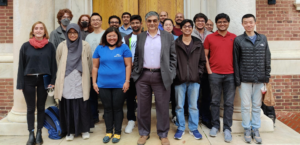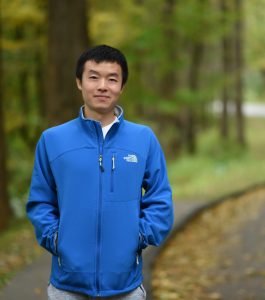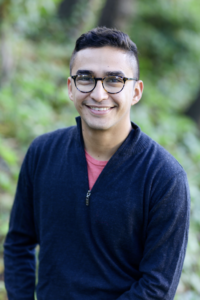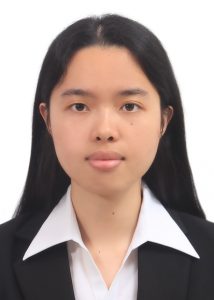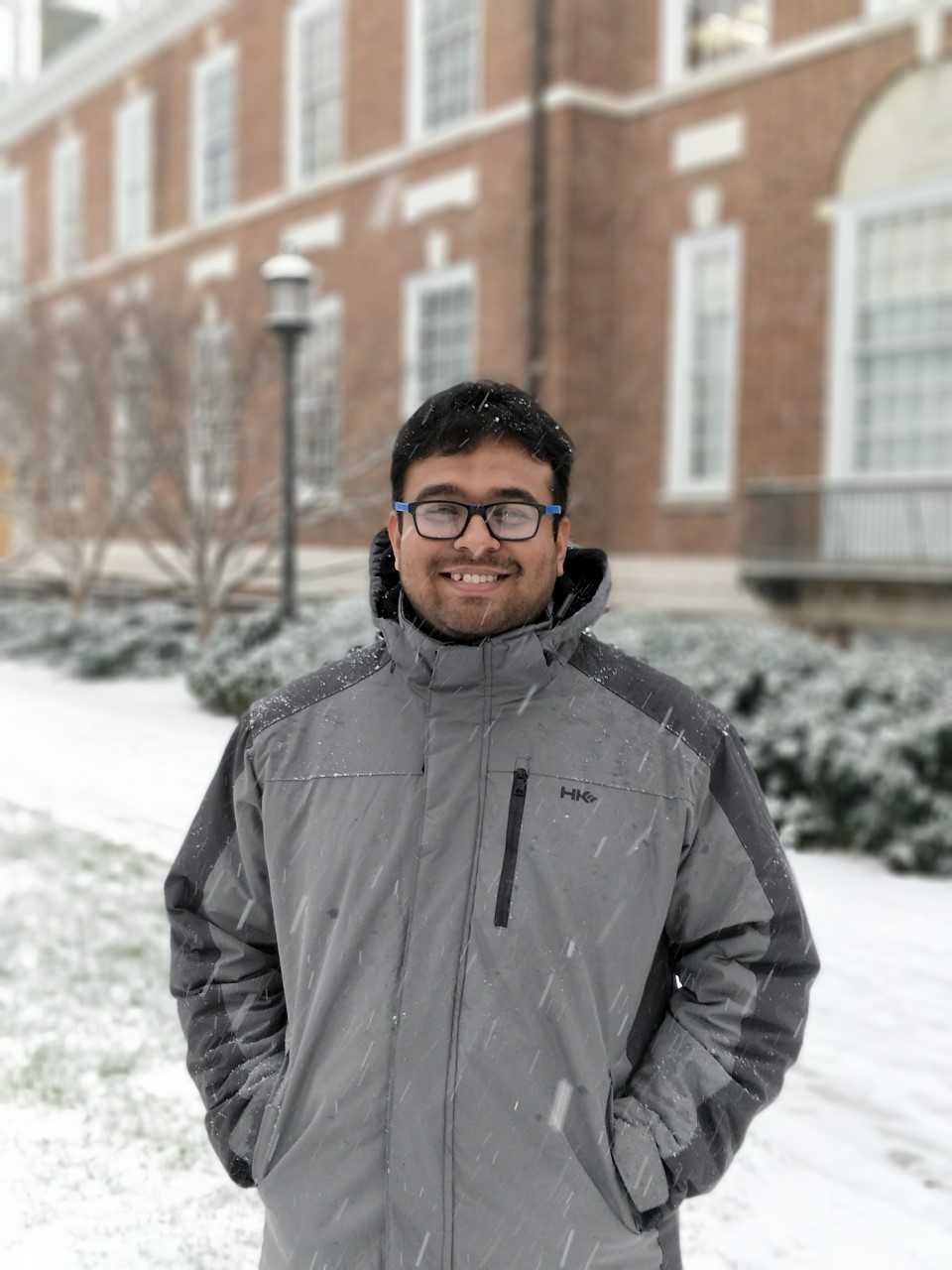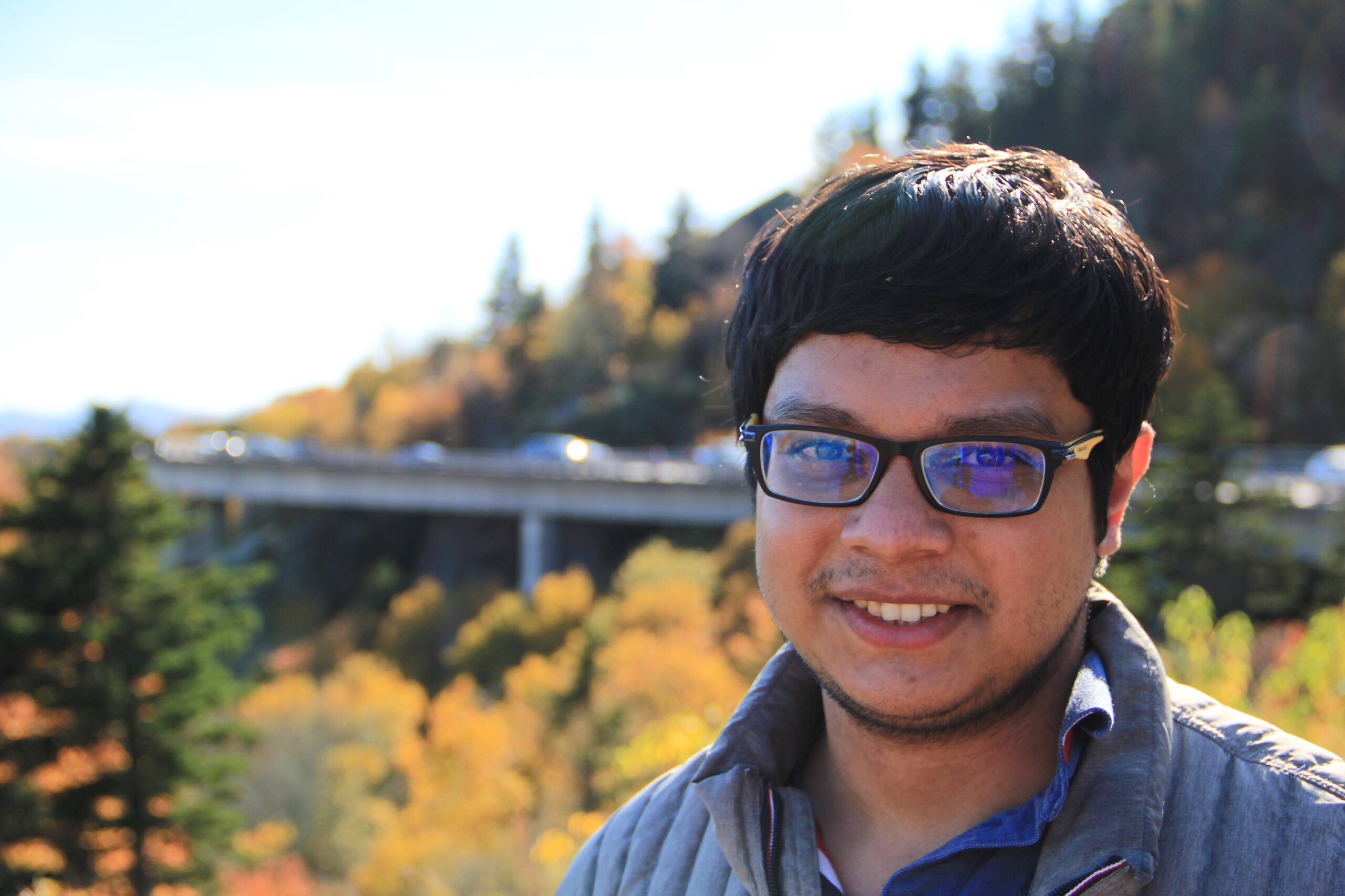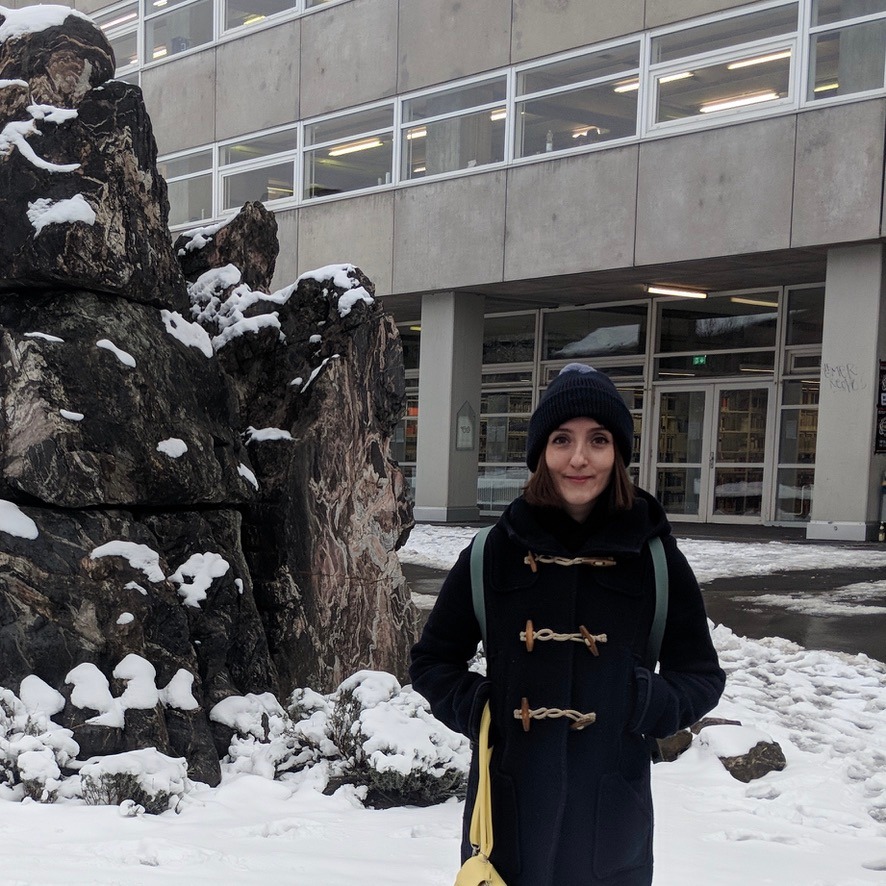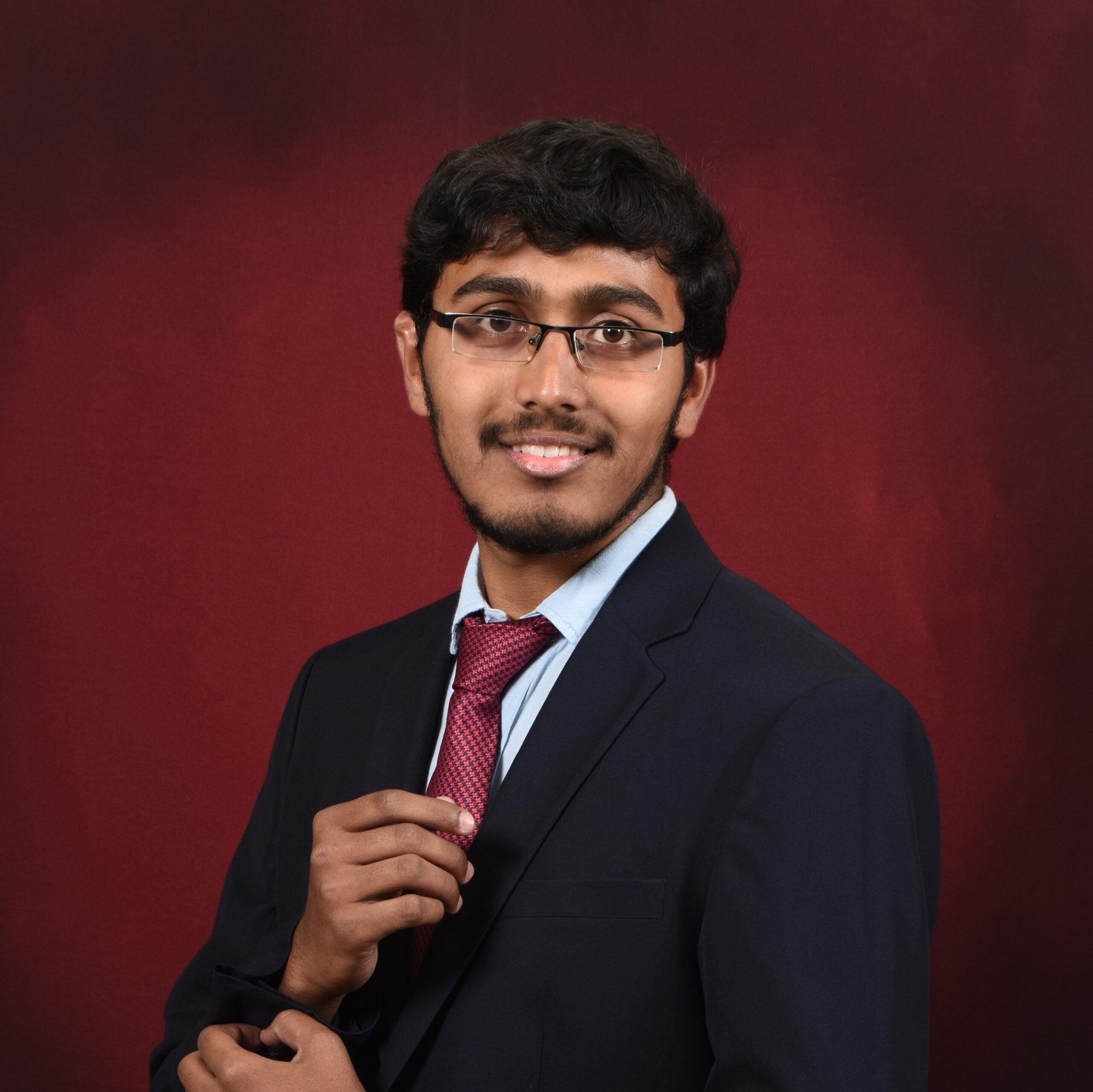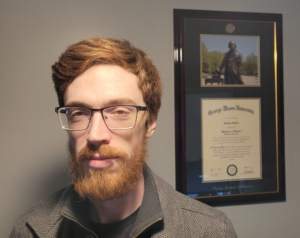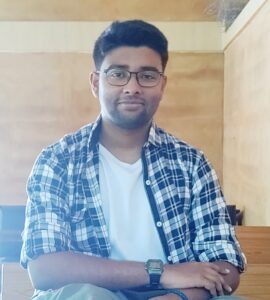Postdoctoral Researchers

Chandra Prakash
Research interest
Multiscale modeling of materials under extreme loading condition, Phase-Field Method.
Current Project: Multiscale modeling and design of protective hybrid composite systems for Aerospace structures.
Past Education Details:
Education:
- PhD, Civil Engineering, Johns Hopkins University, United States.
- MS. Civil Engineering, Northwestern University, Illinois, United States.
- BS. Civil Engineering, University of Macau, Macau, China.
Area of work
Developing Parametrically Homogenized Continuum Damage Mechanics (PHCDM) Model for Composite materials. This PHCDM model accounts for the microscopic morphology and evolution of composite materials during the analysis of macroscopic deformation and damage. Meanwhile, the multi-scale damage model is much more computationally efficient than the conventional FE2 methods, enabling us to understand material failure behaviors across multiple length scales with affordable computation resource.
Publications
- X. Zhang, D. O’Brien and S. Ghosh “Parametrically homogenized continuum damage mechanics (PHCDM) models for composites from micromechanical analysis”, Computer Methods in Applied Mechanics and Engineering, https://doi.org/10.1016/j.cma.2018.12.005
Talks
- X. Zhang, D. O’Brien and S. Ghosh. “Parametric Homogenization Based Continuum Damage Mechanics Model for Composites.” Mach Conference. Annapolis, MD. April, 2018.
- X. Zhang, Z. Li, D. O’Brien and S. Ghosh. “Multi-scale Damage Modeling of Composites: Parametric Homogenization Based Continuum Damage Mechanics.” American Society for Composites 31th Technical Conference. Williamsburg, Virginia. September, 2016
Research Interest
Multiscale modeling of materials during metal forming, deformation, and crack nucleation.
Area of work
Multiscale modeling platform for performance and failure analysis of cold spray formed materials.
Education:
- Ph.D., PSL University, Mines ParisTech. Sophia Antipolis, France.
- M.S., Université de Lorraine, Arts et Métiers ParisTech and LEM3. Metz, France.
- B.E., École Nationale d’Ingénieurs de Metz. Metz, France.
- B.E., Universidad Industrial de Santander. Bucaramanga, Colombia.
Graduate Students
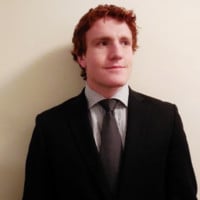
Max Pinz
Area of work:
Integrated Image-Based Multi-Scale Modeling of Yield, Creep, and Fatigue in Nickel-Based Superalloys
My current research is focused on the development and integration of statistical characterization of nickel-based superalloys. Recently we have developed a method of generating statistically equivalent virtual microstructures, and establishing domains for which the microstructural and property response volumes converge. My current focus is in developing a probabilistic crack nucleation model as a function of material state variables.
Education:
- B. S., Applied Mathematics and Statistics, Johns Hopkins University, 2014
- B. S., Chemical and Biomolecular Engineering, Johns Hopkins University, 2014
- M. S., Chemical and Biomolecular Engineering, Johns Hopkins University, 2015
Publications
- Pinz, M., Weber, G., Lenthe, W. C., Uchic, M. D., Pollock, T. M., & Ghosh, S. (2018). Microstructure and property based statistically equivalent RVEs for intragranular γ− γ’microstructures of Ni-based superalloys. Acta Materialia, 157, 245-258.
- Kubair, D. V., Pinz, M., Kollins, K., Przybyla, C., & Ghosh, S. (2018). Role of exterior statistics-based boundary conditions for property-based statistically equivalent representative volume elements of polydispersed elastic composites. Journal of Composite Materials, 0021998318758498.
Talks
- M, Pinz, G.Weber, S.Ghosh, An Integrated Microstructure Development and Crystal Plasticity Approach with Uncertainty Quantification for Multi-scale Constitutive Model Development, TMS 2017, San Diego Ca, February 2017
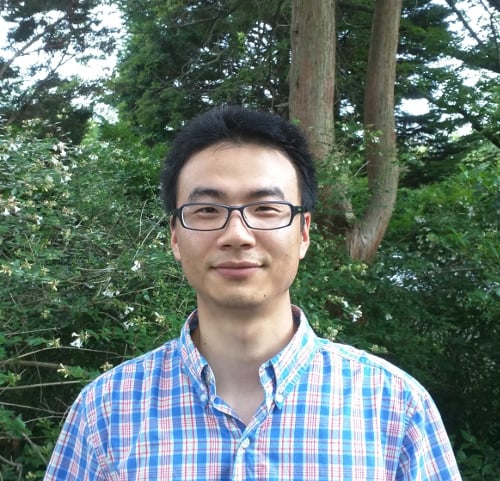
Jinlei Shen
Area of work:
- Develop image-based crystal plasticity model of Ti64 for micro-mechanical analysis.
- Calibrate and validate CPFEM microscopic crack nucleation model from experimental data
- Parametrically Homogenized Continuum Plasticity Model(PHCM) for Ti64 is calibrated through CPFEM simulations and validated with experimental data.
- Develop Wavelet transformation-based multi-time scale (WATMUS) for both CPFEM and PHCM to accelerate the simulation of Ti64 under cyclic loading
Education:
- Ph.D., Civil Engineering, Johns Hopkins University, 2015-present
- M. S., Civil Engineering, Hefei University of Technology, 2014
- B. S., Civil Engineering ,Hefei University of Technology, 2011
Publications
-
Cheng, J., Shen, J., Mishra, R. K., & Ghosh, S. (2018). Discrete twin evolution in Mg alloys using a novel crystal plasticity finite element model. Acta Materialia, 149, 142-153.
-
Tu, X., Shahba, A., Shen, J., & Ghosh, S. (2018). Microstructure and property based statistically equivalent RVEs for polycrystalline-polyphase aluminum alloys. International Journal of Plasticity.
Education:
- Ph.D. of Civil Engineering, Aug.2017 – present, Johns Hopkins University,
- Master of Engineering in Civil Engineering, Sep 2014 – Jun 2017, Harbin Institute of Technology, Harbin, P.R.China
- Bachelor of Engineering in Civil Engineering, Aug 2010 – Jun 2014, Harbin Institute of Technology, Harbin, P.R.China
Area of work
I am interested in multiscale damage modeling of composites material. Now I am working on the parametrically homogenized continuum damage mechanics (PHCDM) model for woven composites materials. We use the PHCDM model to predict damage behavior across various composites material length scales. The three-dimension representative volume element RVE of woven composites is used to predict the micro mechanical properties. The effective material properties of woven composites are studied using the numerical homogenization techniques to get the micro-macro equivalence embedded in PHCDM model.
Area of work:
I am currently working on multiphysics problems. My work essentially encompasses coupled mechanical and electromagnetic systems used in antenna and sensor applications. Specifically, I am in the process of developing material models for piezoelectric sensors to be used in the quantification of material damage in mechanical systems. I work with and develop finite element programs for solving coupled electromagnetics (Maxwell’s Equations of Electromagnetics) and mechanics (Equations of Mechanical Equilibrium) in a finite deformation paradigm. This facilitates in solving more complex mechanical systems involving sensing of mechanical damage from evolving electromagnetic fields.
Education:
- PhD, Civil Engineering, Johns Hopkins University, United States.
- M.Tech, Department of Civil Engineering, Indian Institute of Technology, Kharagpur (2015)
- B.Tech, Department of Civil Engineering, Indian Institute of Technology, Kharagpur (2015)
Journal Articles:
- P. Tarafder, S. Dan and S. Ghosh, “Finite deformation cohesive zone phase field model for crack propagation in multi-phase microstructures”, Computational Mechanics, Vol. 66, No. 3, pp. 723-743, 2020.
Conference Talks:
- S. Dan, P. Tarafder and S. Ghosh, “A Computational Damage Sensor using Electromechanically Coupled Piezoelectric Materials”, 15th US National Congress on Computational Mechanics, Austin, Texas, July 28 – August 1, 2019
Area of work:
My work is focused on computational modelling of multifunctional materials, in which the material behavior is governed by more than one governing equations and follows a coupled constitutive law. Currently, I am working on developing an efficient finite element model for piezoelectric materials in finite deformation framework by establishing a two-way coupling between mechanical and transient electric fields.
Education:
- PhD, Civil Engineering, Johns Hopkins University, United States.
- M.Tech., Structural Engineering, Indian Institute of Technology Kharagpur, 2017
- B.Tech., Civil Engineering, Indian Institute of Technology Kharagpur, 2017
Journal Articles:
- P. Tarafder, S. Dan and S. Ghosh, “Finite deformation cohesive zone phase field model for crack propagation in multi-phase microstructures”, Computational Mechanics, Vol. 66, No. 3, pp. 723-743, 2020.
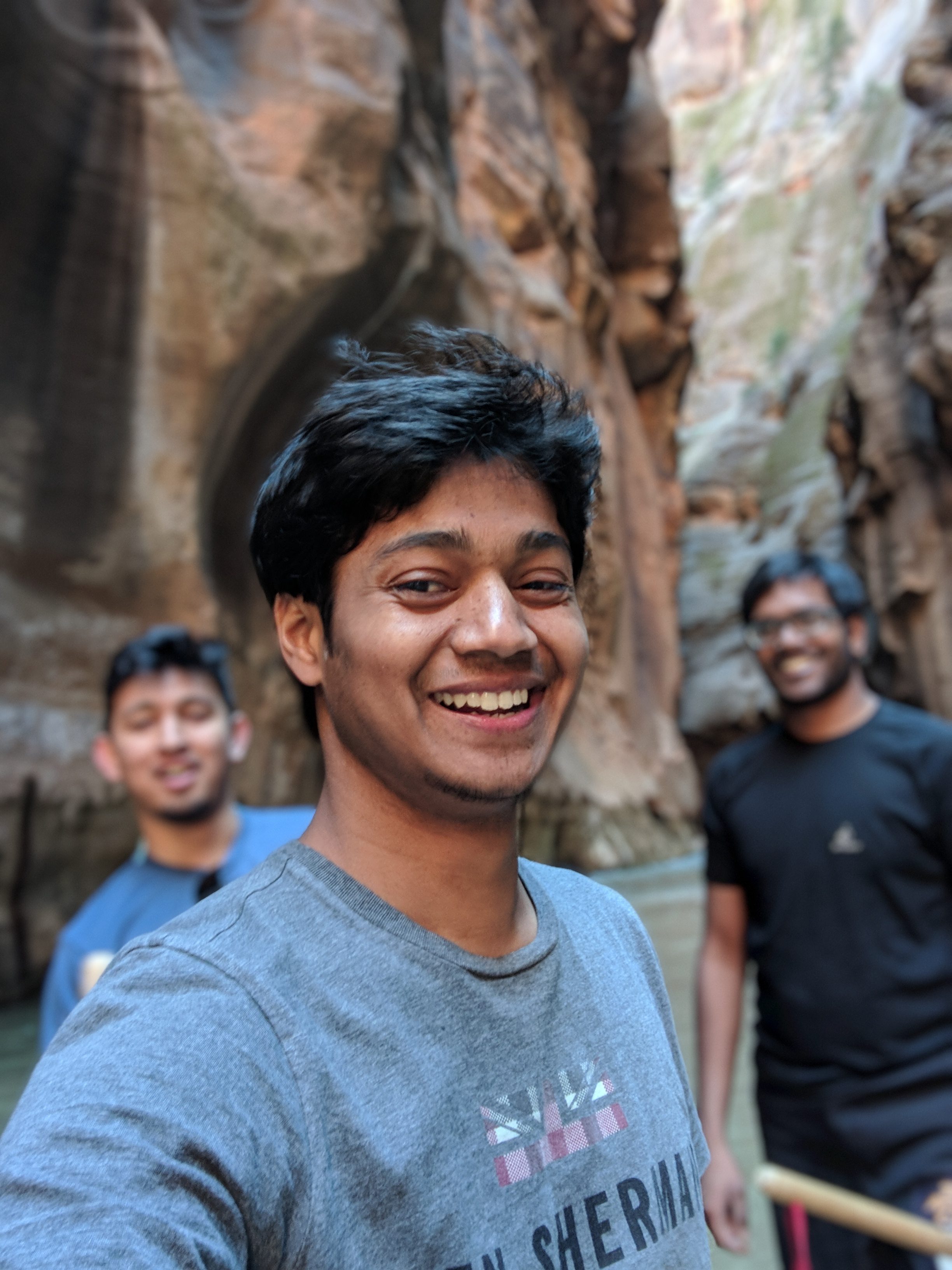
Maloth Thirupathi
Area of work:
Education:
- 2011-2015 B.Tech, Aerospace Engineering, Indian Institute of Technology Bombay, Mumbai, India
- 2015-2017 MS, Mechanical Engineering, King Abdullah University of Science and Technology, Thuwal, Saudi Arabia
- 2017 – PhD, Civil Engineering, Johns Hopkins University
Journal Articles:
- T. Maloth, D. Ozturk, G. Hommer, A. Pilchak, A. Stebner and S. Ghosh, “Multiscale modeling of cruciform dwell tests with the uncertainty-quantified parametrically homogenized constitutive model”, Acta Materialia, 2020.
Area of work:
Fatigue crack propagation
Education:
- Ph.D., Civil Engineering, Johns Hopkins University, 2020 –
- M.S., Civil Engineering, University of Stuttgart, Germany, 2016 – 2019
- B.S., Civil Engineering, Istanbul Technical University, Turkey, 2009 – 2014
Area of work:
Computational Modelling of Aluminium Alloys
Research Interests:
Multiscale Modelling of Materials Deformation
Education:
- M.Tech., Materials Engineering, Indian Institute of Science, Bangalore, India (2018-2020)
- B.Tech., Metallurgical and Materials Engineering, National Institute of Technology Rourkela, India (2014-2018)
Area of work:
Computational image-based multi-scale modeling of fatigue failure in cold sprayed aluminum alloy microstructures
Education:
- B. S., Mechanical Engineering, George Mason University, 2020
Area of work:
My research is on developing a parametrically homogenized coupled crystal plasticity-phase field model for polycrystalline materials that can predict crack propagation and accounts for crack-tip nucleated dislocations
Education:
- PhD., Civil Engineering, Johns Hopkins University. (2020-Present)
- M.Tech., Structural Engineering, Indian Institute of Technology Kharagpur, India (2016-2018)
- B.Tech., Civil Engineering, National Institute of Technology Calicut, India (2012-2016)
Area of work:
I am inclined towards exploring the interface of engineering and applied sceinces. Currently I am working on a project closely aligned with Additive Manufacturing.
Education:
-
MTech, Civil Engineering ( major in Structural Engineering), Indian Institute of Science, Bangalore, India (2019-2021)
-
BE, Civil Engineering, Jadavpur University, Kolkata, India, (2014-2018)


